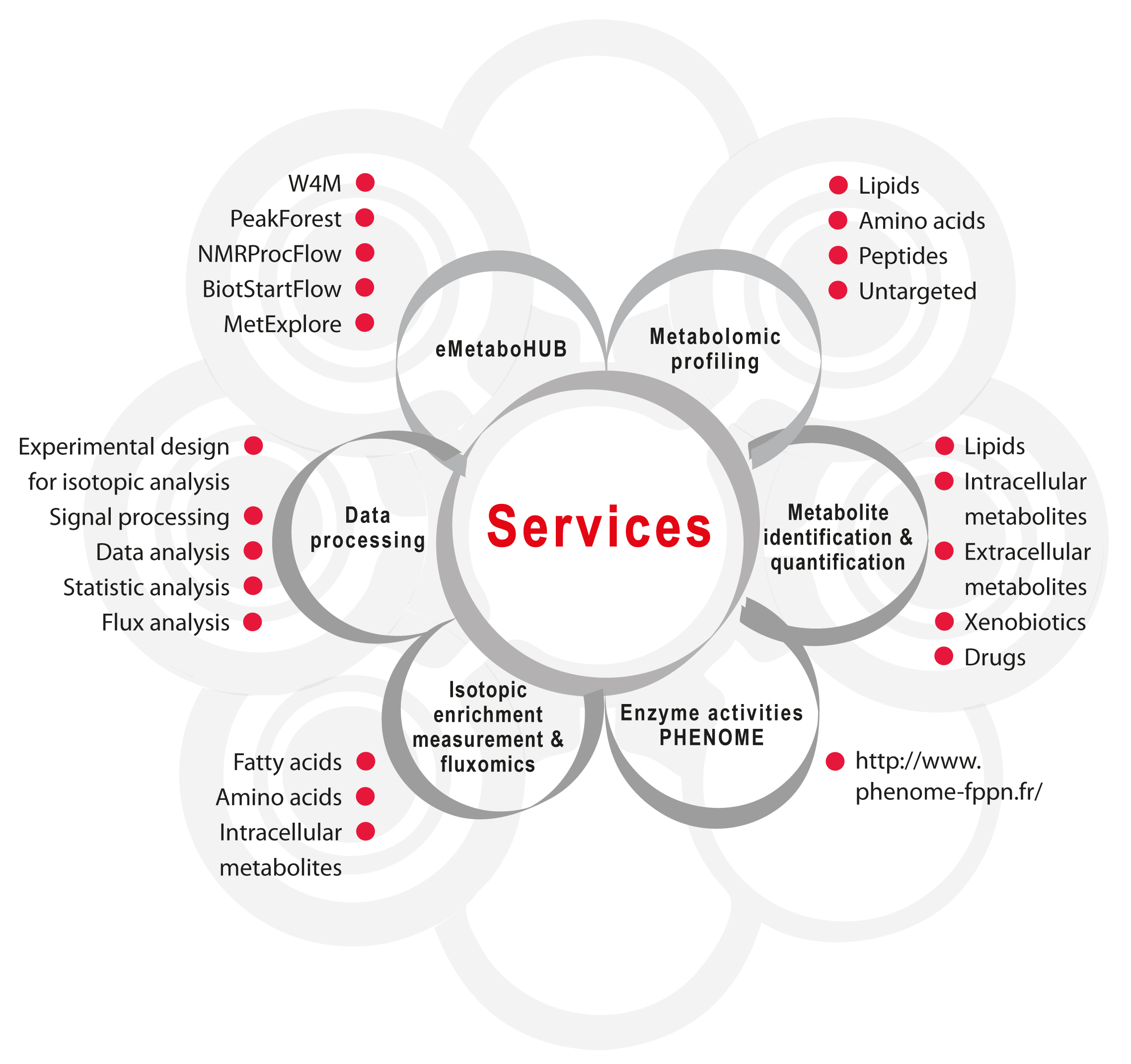Services offer: metabolites flows
MetaboHUB is a French Resource Core designed to expand the availability of metabolomics services to investigators in life science while simultaneously advancing the state-of-the art in metabolomics research.
The MetaboHUB infrastructure will be open to the French and International public and private scientific community in 2017. Partnership frameworks range from fee-for-services, access to equipment to collaborative research projects.
MetaboHUB infrastructure gathers the equipment, means, competences, and critical mass to respond to the specific requirements of current and future metabolomics.
The figure below shows the main types of analyses available on MetaboHUB:
You can find also the main equipments available
Note the complexity of the metabolomics and fluxomics approach:
Multi-tools requirement: no single technology is able to detect all the metabolites of a biological media because these inherently display diverse chemical formulas. Then, metabolics profiling requires a combination of different analytical tools, principally nuclear magnetic resonance (NMR), and mass spectrometry (MS) based technology;
Large-scale analysis programs: as for genomics and proteomics, metabolomics studies are evolving to large-scale programs requiring technological capacities and expertise to analyse a high number of samples and handle the considerable amount of biological and clinical data generated;
Standardization of data and databases establishment: shared bioinformatics tools and competences allow the metabolomics community to work on the compatibility of metabolome data among laboratories (conversion of file formats, interbatch and interlaboratory normalization), the establishment of standardized meta-data bases and standard references for analytical tools to improve integration of metabolomics data;
Multicompetences requirements: metabolomics requires the gathering of technical competences, computer science, signal processing, statistics, data mining and meta-data management but also of competences and expertise in different strategic fields of research and application such as medicine, nutrition, green and white biotech;
Systems biology approach: the integration of technologies and competences will enhance the elucidation of metabolomics networks and their dynamic functioning (i.e. emerging field of fluxomics) to explain and/or optimize biological processes. There is a need to support systematic approaches to accurately annotate the metabolome of the major species in order to integrate these reliable data with other functional genomics data and functional information – i.e. metabolite pools, enzyme activities, metabolic fluxes – and build in silico models to predict the metabolic behavior, thereby providing a methodological and conceptual framework for predictive biotechnology, in vitro diagnostics and disease modeling.

